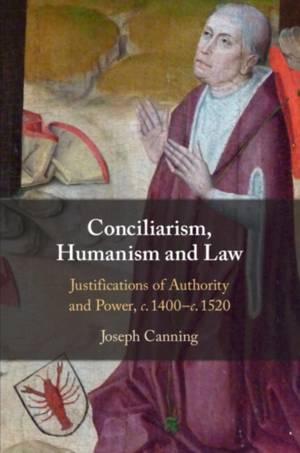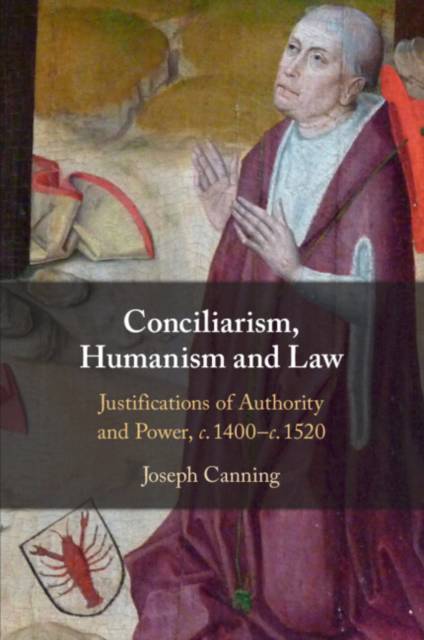
- Afhalen na 1 uur in een winkel met voorraad
- Gratis thuislevering in België vanaf € 30
- Ruim aanbod met 7 miljoen producten
- Afhalen na 1 uur in een winkel met voorraad
- Gratis thuislevering in België vanaf € 30
- Ruim aanbod met 7 miljoen producten
Zoeken
Conciliarism, Humanism and Law
Justifications of Authority and Power, c. 1400–c. 1520
Joseph Canning
Paperback | Engels
€ 43,45
+ 86 punten
Uitvoering
Omschrijving
How was power justified in late medieval Europe? What justifications did people find convincing, and why? Based around the two key intellectual movements of the fifteenth century, conciliarism in the church and humanism, this study explores the justifications for the distribution of power and authority in fifteenth- and early sixteenth-century Europe. By examining the arguments that convinced people in this period, Joseph Canning demonstrates that it was almost universally assumed that power had to be justified but that there were fundamentally different kinds of justification employed. Against the background of juristic thought, Canning presents a new interpretative approach to the justifications of power through the lenses of conciliarism, humanism and law, throwing fresh light on our understanding of both conciliarists' ideas and the contribution of Italian Renaissance humanists.
Specificaties
Betrokkenen
- Auteur(s):
- Uitgeverij:
Inhoud
- Aantal bladzijden:
- 215
- Taal:
- Engels
Eigenschappen
- Productcode (EAN):
- 9781108927192
- Verschijningsdatum:
- 2/11/2023
- Uitvoering:
- Paperback
- Formaat:
- Trade paperback (VS)
- Afmetingen:
- 152 mm x 229 mm
- Gewicht:
- 294 g

Alleen bij Standaard Boekhandel
+ 86 punten op je klantenkaart van Standaard Boekhandel
Beoordelingen
We publiceren alleen reviews die voldoen aan de voorwaarden voor reviews. Bekijk onze voorwaarden voor reviews.











